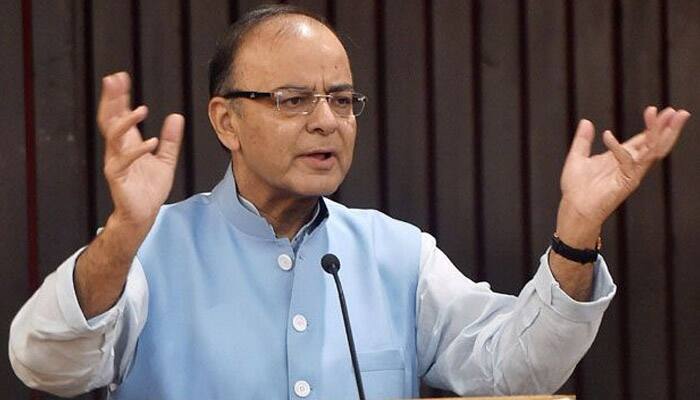New Delhi: With pulses spiking to a record of up to Rs 190 per kg, the government Wednesday swung into action with a number of measures including use of price stabilisation fund and imports to cool prices and create a buffer stock.
An inter-ministerial group headed by Finance Minister Arun Jaitley reviewed the price situation as rates peaked to Rs 187-190 a kilogram in retail markets across the country.
Jaitley said the government has decided to invoke the Rs 500-crore Price Stabilisation Fund that will be used to pay for transportation, handling, milling and processing -- aimed at reducing the cost of imported pulses.
This would help in increasing supplies and making pulses available in the retail markets at lower rates.
Also, states have been asked to lift stock of pulses lying at ports like Jawaharlal Nehru Port near Mumbai.
To deal with supply crunch, the government has also decided to create a buffer stock of lentils mainly through imports, Jaitley said.
"Keeping in mind that some amount of stock is available with JNPT, the group decided that we build up a buffer stock preferably by imports to take care of the problem in future," he told reporters after the IMG meeting.
Jaitley further said that "more quantity for the next few days will also be imported into the country so that the supply side problem can be taken care of which will have an impact on prices."
Sources said a further 2,000 tonnes of pulses will be imported to curb rising prices. This will be in addition to the 5,000 tonnes lying at the ports and another 2,000 tonnes of pulses that are in transit.
"We have also decided to invoke our Price Stabilisation Fund and therefore the handling charges at the port, the transportation charges, the milling and processing charges -- in order to make the price of the pulses more affordable," will be borne by the fund, he said.
The Finance Minister said a "considerable" amount of stock will come to the market over the next few days. This together with the invocation of the Price Stabilisation Fund will have some impact on cooling down the prices of pulses.
The prices of pulses have risen unabated for the past few
months due to a fall in domestic output by about 2 million tonnes (mt) to 17.20 mt in 2014-15 crop year (July-June) owing to deficient monsoon and unseasonal rains.
"As far as the present stocks are concerned, we request the states which are in need to start lifting the quantity which is available," Jaitley said.
Today's meeting on pulses was attended by Commerce Minister Nirmala Sitharaman, Parliamentary Affairs Minister Venkaiah Naidu, Transport Minister Nitin Gadkari, Principal Secretary to PMO Nripendra Misra and senior government officials.
Briefing reporters, Jaitley said the government is making efforts to ensure that people get pulses at a lower rate than international prices.
"We are trying to persuade the states to lift it (JNPT stocks). States have to be given an initial incentive. Milling charges, transportation charges, port handling charges -- all these we will pay from the Price Stabilisation Fund. This will be attractive for the states and the price at which they will get, it will be lower than the international prices," he said.
Earlier in the day, Union Minister Ravi Shankar Prasad said: "There is a shortfall in production. To address the problem, the government is trying hard to boost supply through imports. The government is fully aware of the situation. Wait for some time."
Retail prices of tur dal today rose up to Rs 181 per kg -- much higher than the cost of chicken -- in most parts of the country, as against Rs 85 per kg in the year-ago period, as per the data maintained by the Consumer Affairs Ministry.
Similarly, urad dal prices have increased up to Rs 187 per kg from Rs 99 per kg in the said period. Much of the increase was seen in these two dals, while the rise in prices of moong dal and gram was moderate.
Besides imports, the government has taken several measures to check price rise. It has imposed restrictions on holding of pulses stock beyond a ceiling and taken action against hoarders and black marketeers.
















